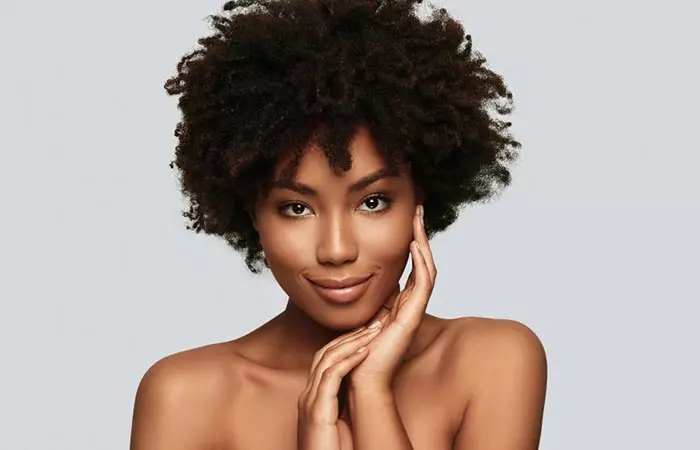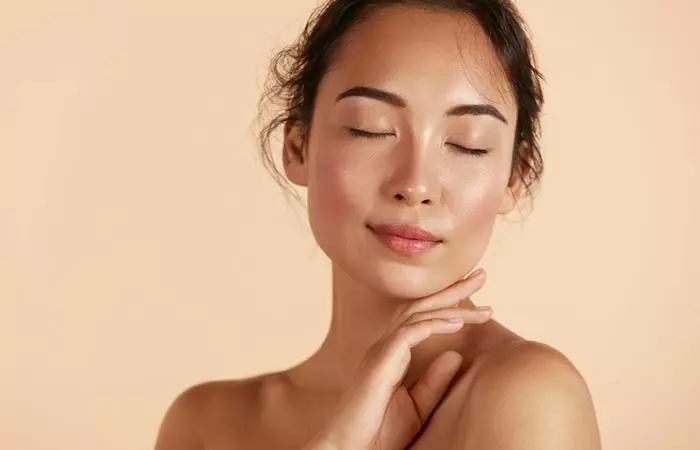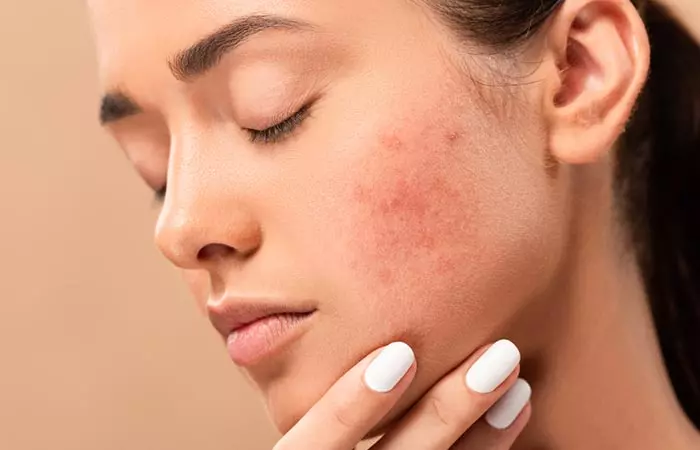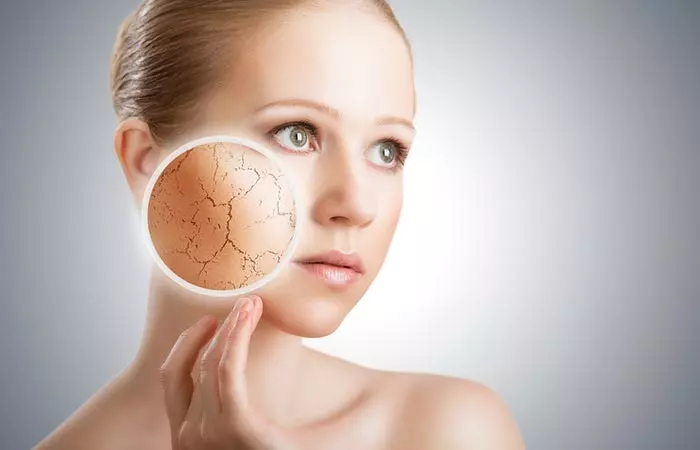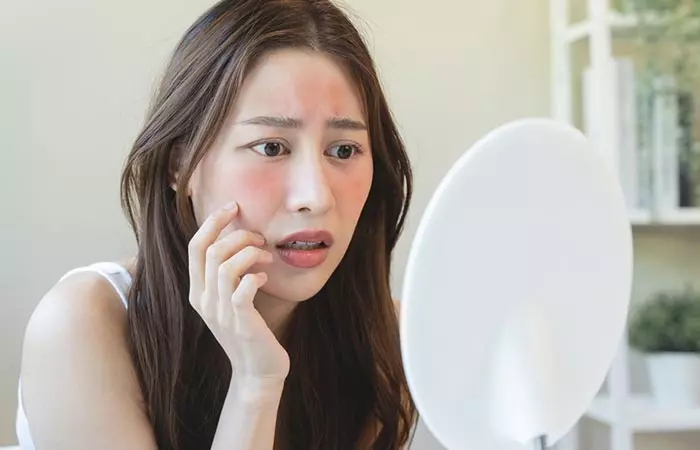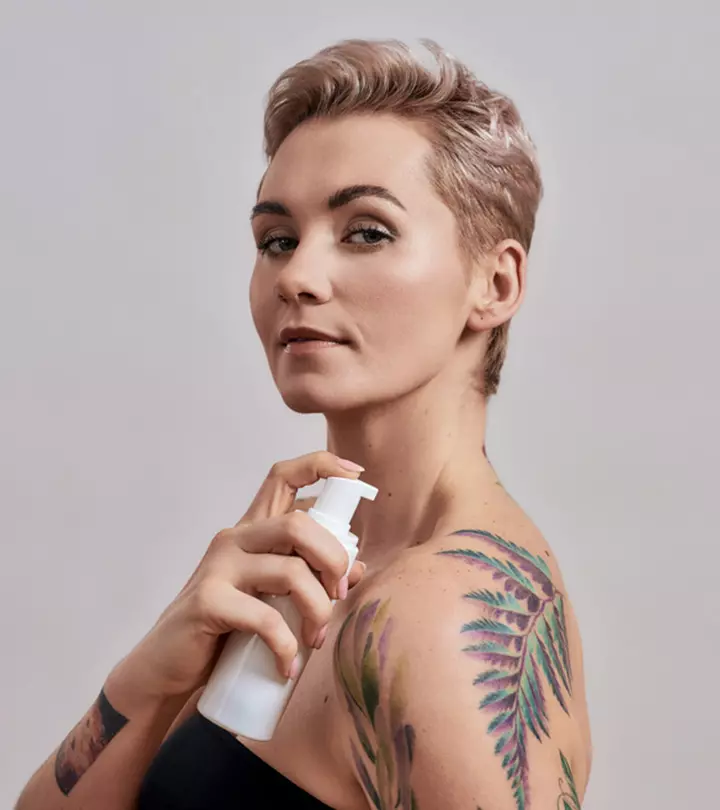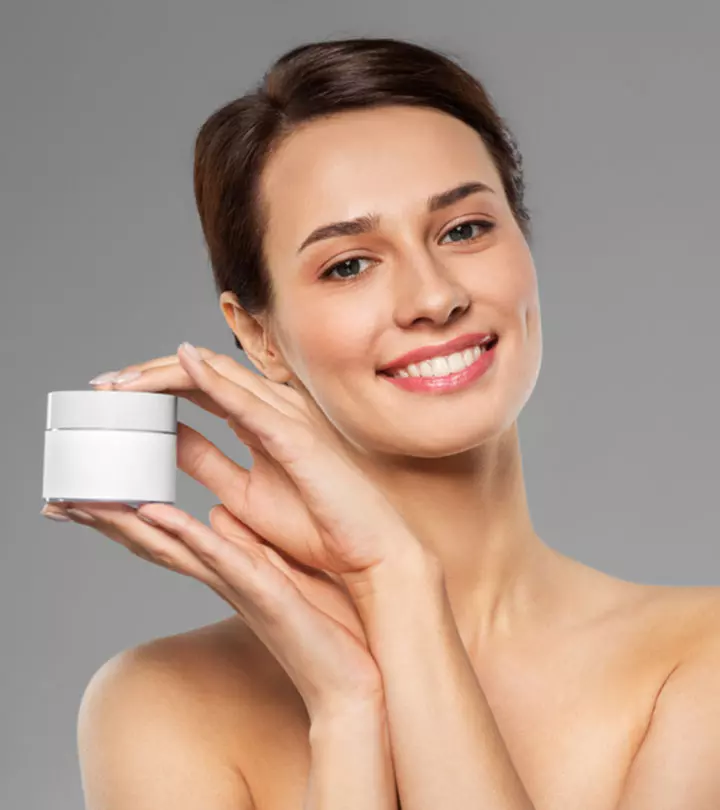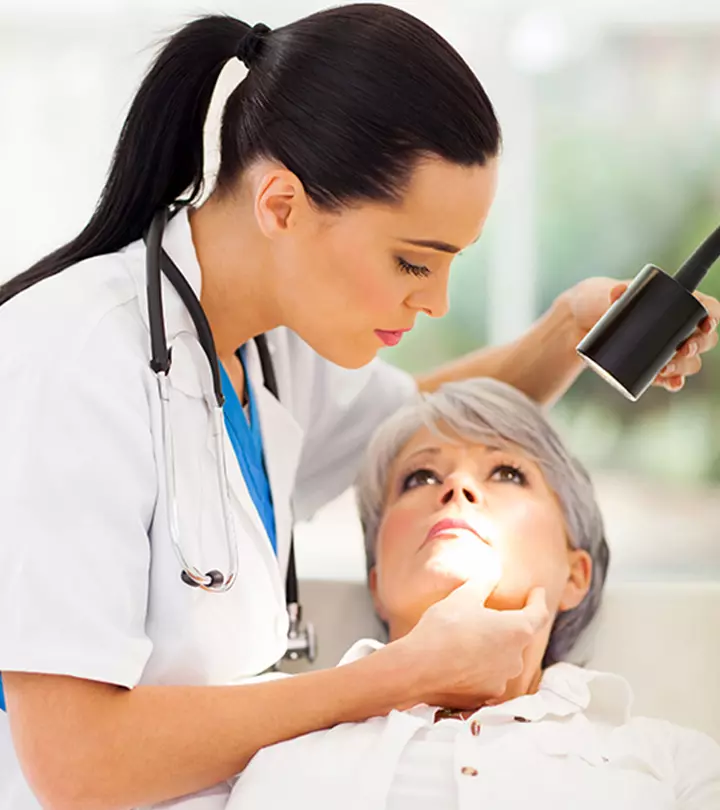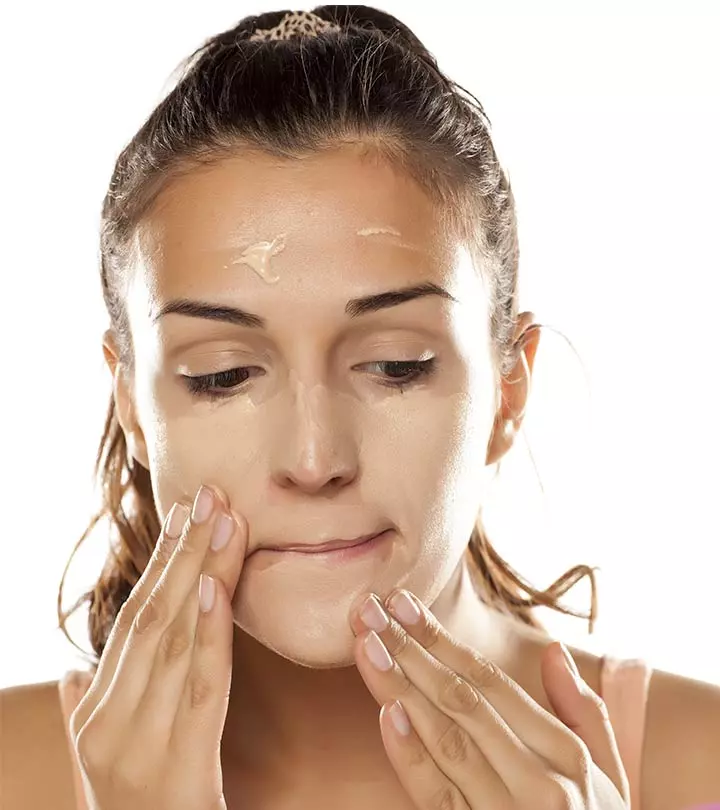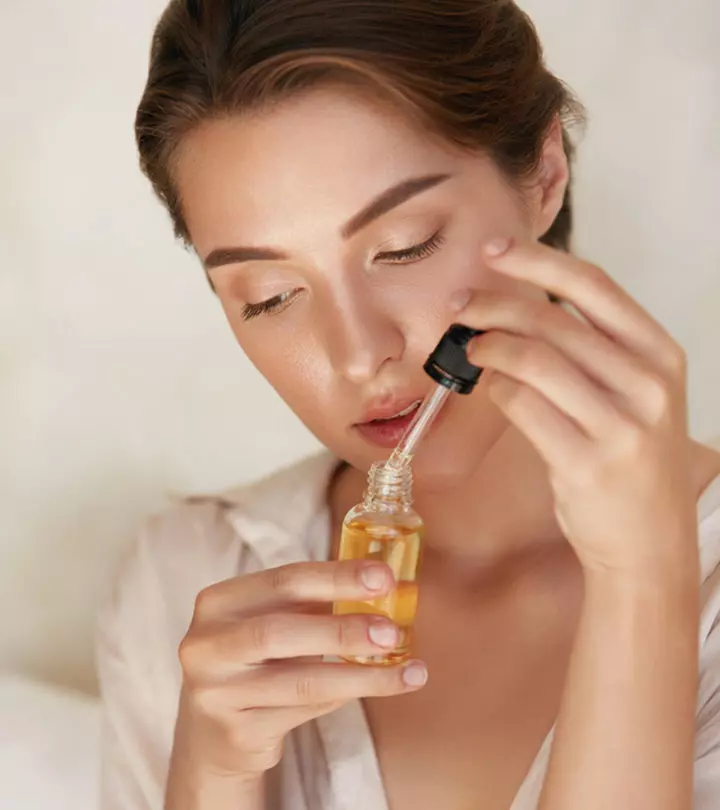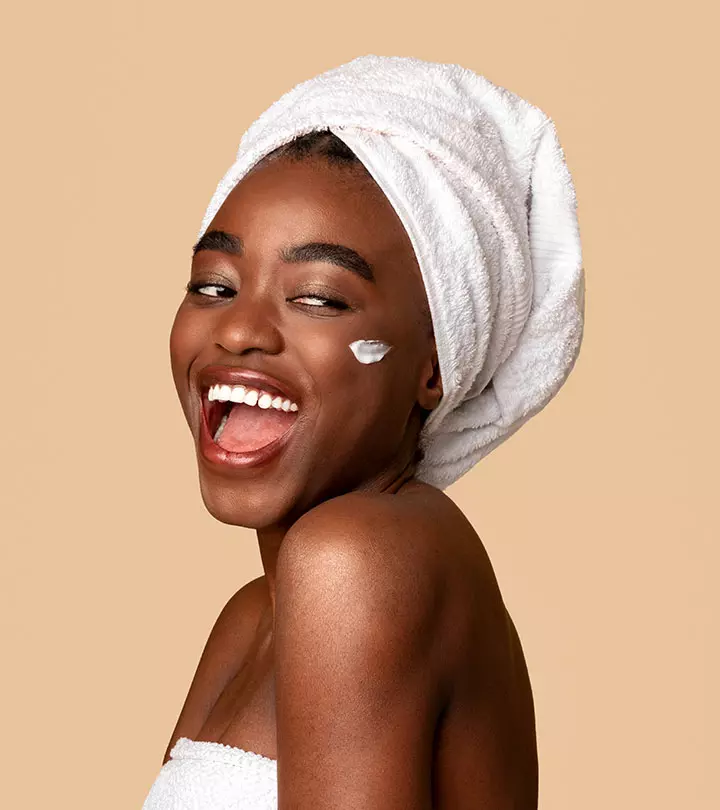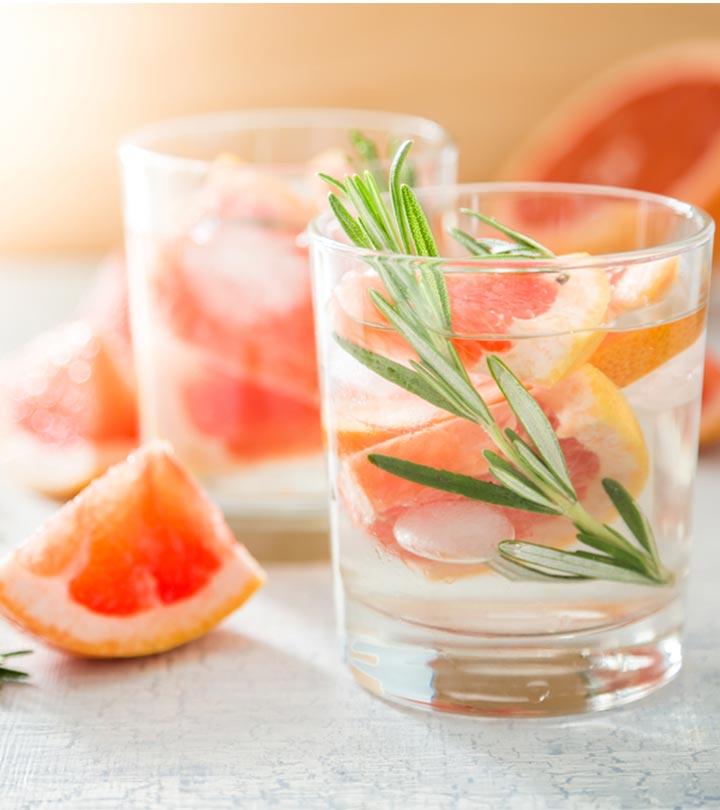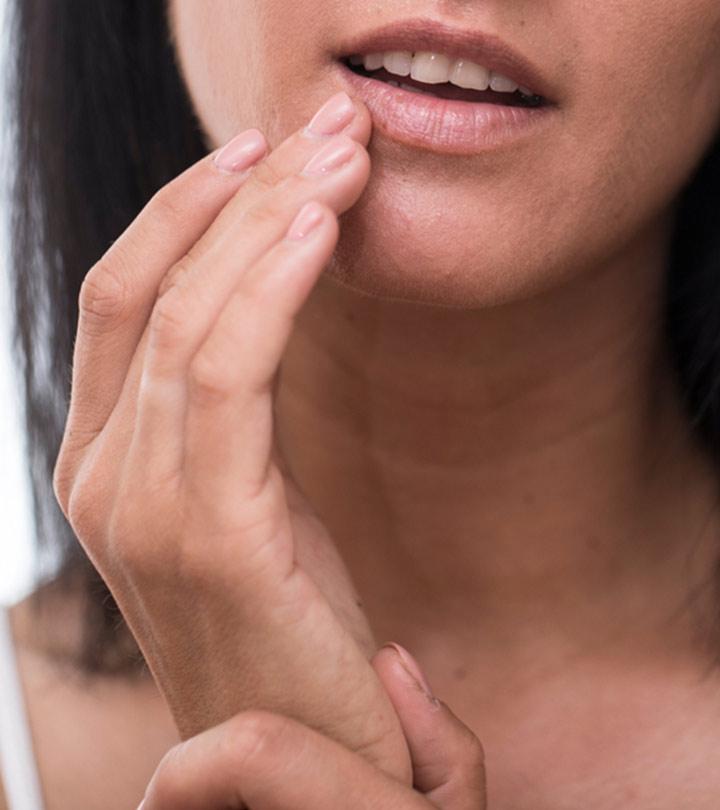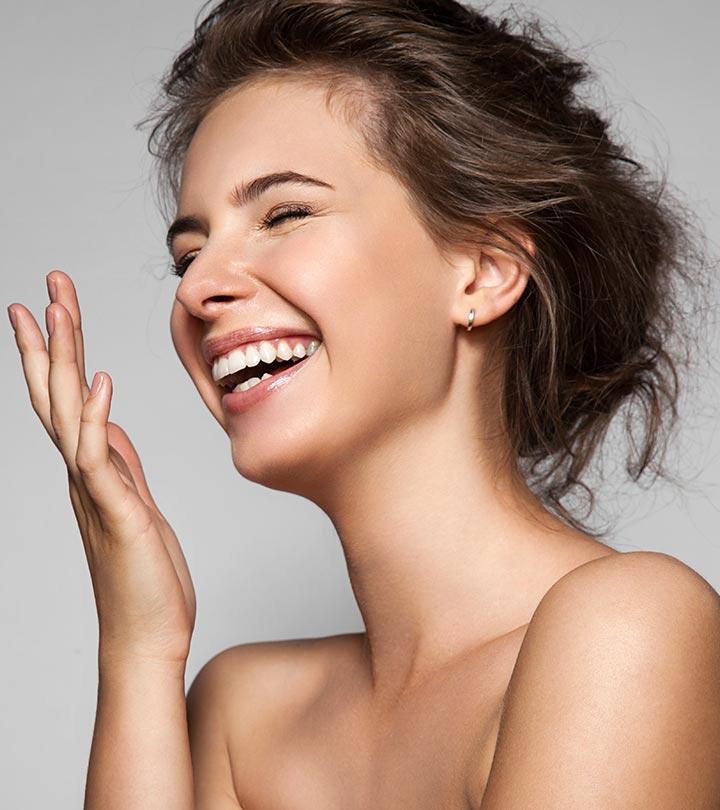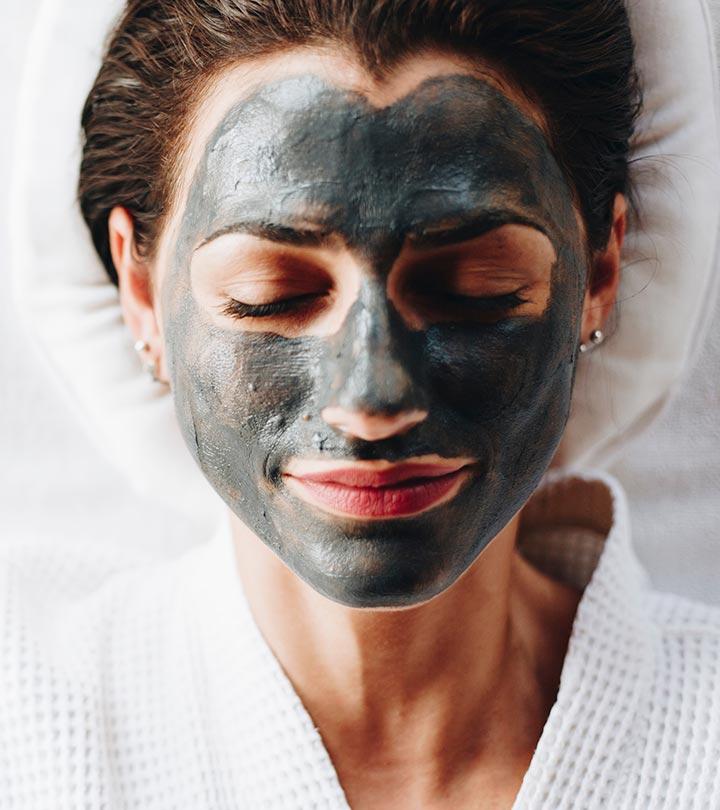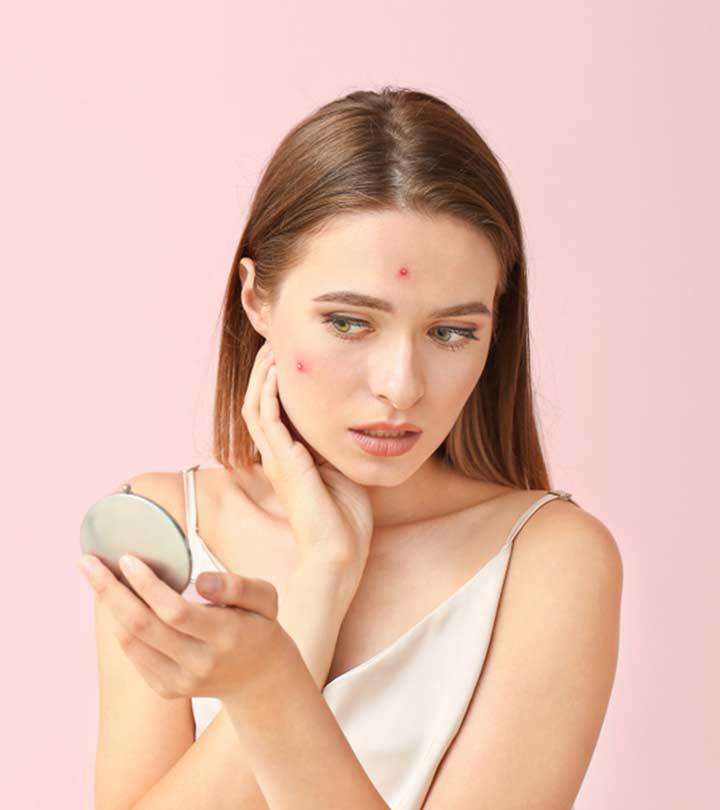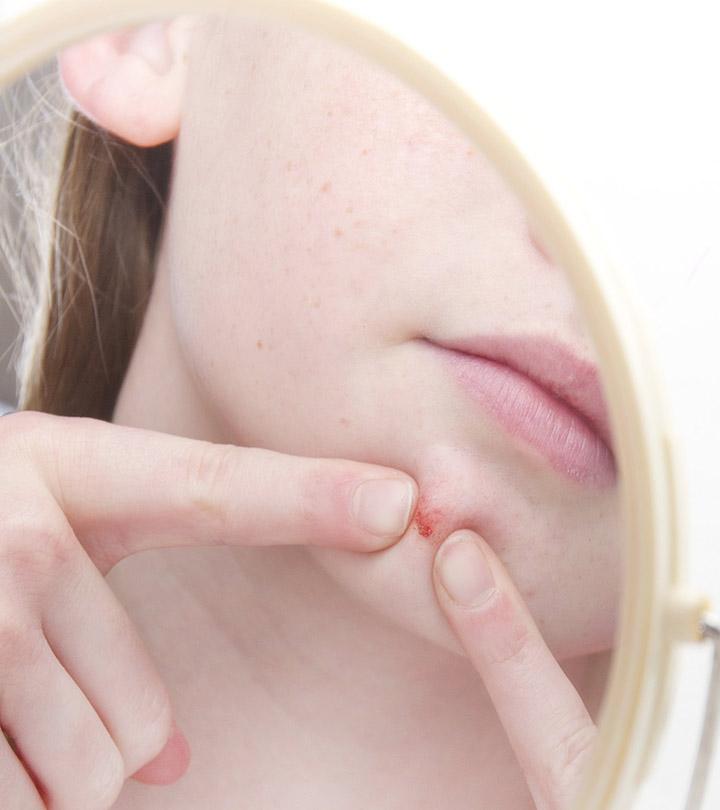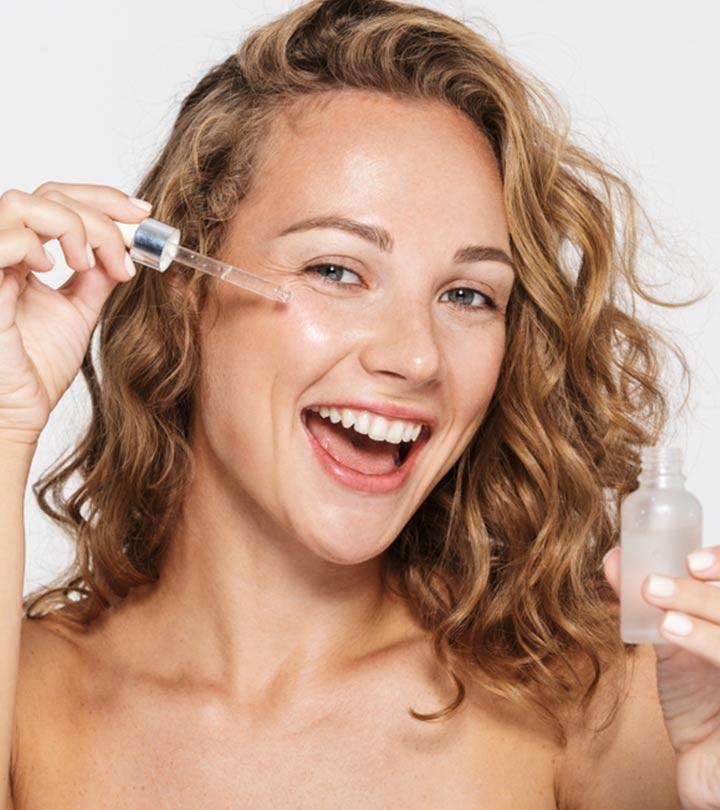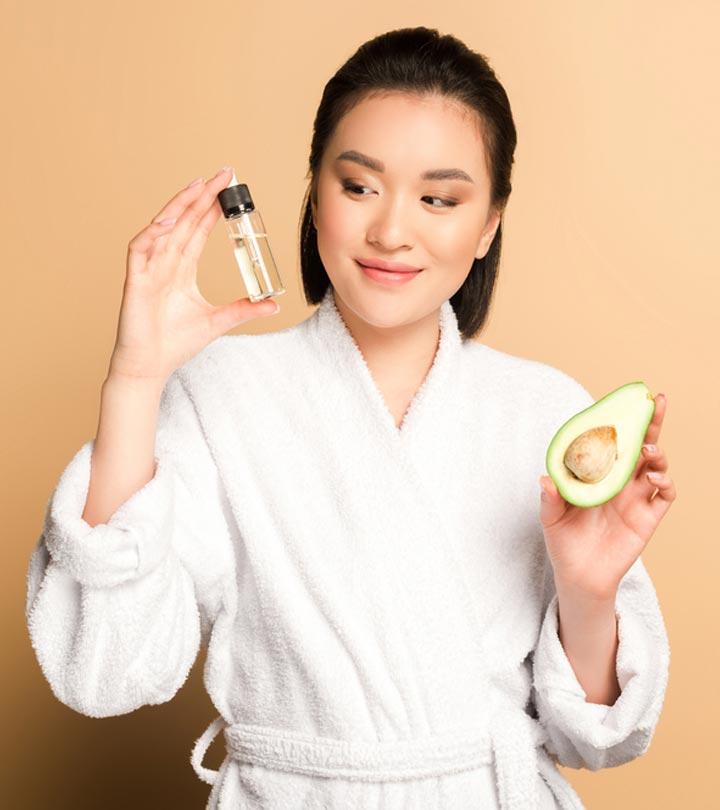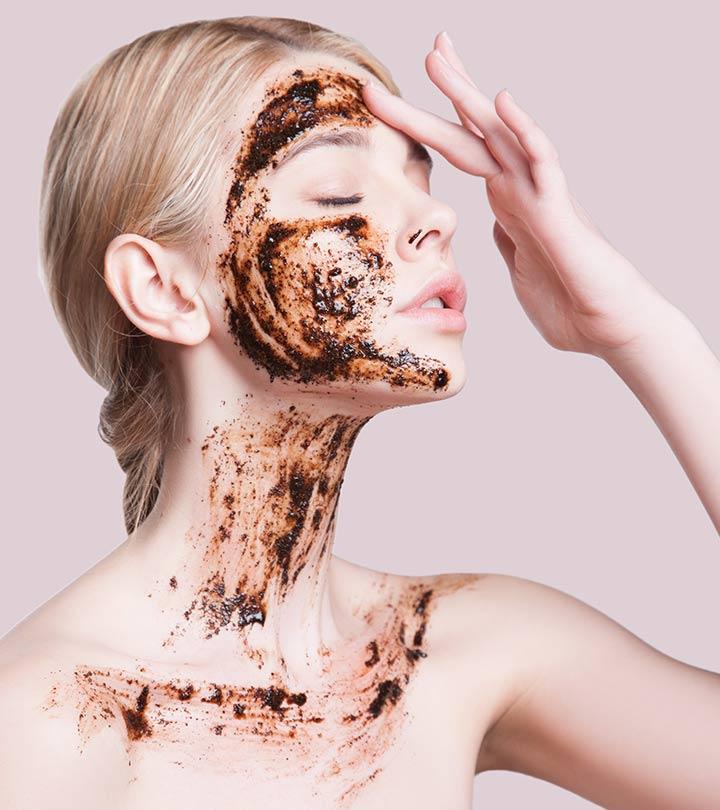Butylene Glycol In Skin Care: Everything You Need To Know
Discover the right products to use to make the most of this skin-nourishing ingredient.
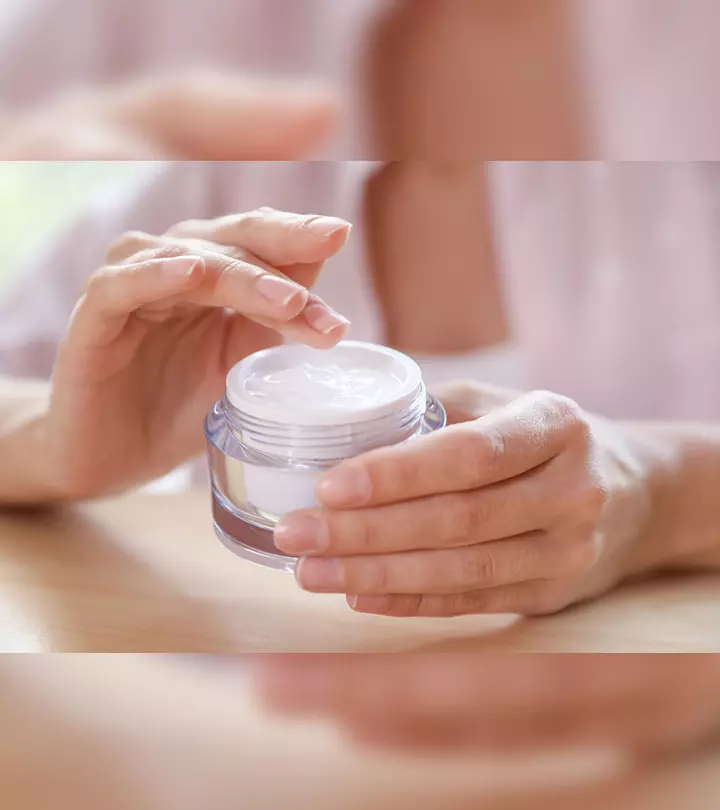
Image: ShutterStock
The list of popular ingredients in the skin care industry is constantly evolving. The previously popular and now controversial ingredient, propylene glycol, is being replaced by butylene glycol – a compound that is considered less harmful for the skin (1), (2). There are many benefits of butylene glycol for the skin. It is incredibly effective and yields extremely positive results within the first application. In addition, it has a light texture and provides excellent hydration to the skin. It is suitable for all skin types.
This article is for you if you have any doubts about using products containing butylene glycol. We will go through the benefits, uses, advantages, disadvantages, concerns, and precautions for utilizing this component. Let’s get started!
 Know Your Ingredient: Butylene Glycol
Know Your Ingredient: Butylene GlycolWhat Is It?
A clear, viscous liquid derived from petroleum, distilled corn, and sugarcane.
What Are Its Benefits?
It moisturizes the skin, reduces viscosity in skincare products, and treats dry and acne-prone skin.
Who Can Use It?
All except those who are pregnant, breastfeeding or allergic to it.
How Often?
Daily as part of your skincare routine.
Caution
Consult a dermatologist before adding it to your skincare routine as it may cause skin irritation and in rare cases, allergic contact dermatitis in some individuals.
In This Article
What Is Butylene Glycol?
Butylene glycol is a type of organic alcohol that is derived from petroleum, distilled corn, and sugarcane. It is a common ingredient found in many personal care products and has been widely recognized for its anti-aging properties and positive effects in dermatology. This water-soluble ingredient works as an excellent texture-enhancer and is similar to propylene glycol, with the exception being that it has a lighter texture. In terms of appearance, it is a clear, odorless, and viscous liquid. It is known to have a slightly sweet taste and a bitter after-taste.
There are four forms of butylene glycol that differ in composition and offer a wide host of skin care benefits depending on their formula and structure.
- 1,2-butanediol: It acts as a humectant and solvent. It is extremely effective in decreasing the overall viscosity of a product and boosting the skin penetration abilities of other ingredients.
- 1,3-butanediol: This is the most commonly used form of butylene glycol. It doubles up as an effective alternative to propylene glycol and glycerol because it has better solvency. It also demonstrates humectant properties and reduces the viscosity of products while preventing them from drying out and crystallizing. It has been branded as non-toxic as it does not cause skin irritation at a safe level of concentration.
- 2,3-butanediol: It is a potent viscosity reducer but is not widely used in skin care products. Since not much research has been done to understand its toxic side effects, this form of butylene glycol has not been used in skin care products yet.
- 1,4-butanediol: It is typically used as a solvent in cosmetic products. However, it offers limited properties and is generally used in eye products because it does not irritate the eyes.
 Did You Know?
Did You Know?Here are a few defining characteristics of butylene glycol:
- It is typically used for cosmetic purposes and is found in all kinds of skin care products – from cleansers and moisturizers to face masks and makeup products. It helps to create a smooth, thick product that can glide onto the skin and hair effortlessly. In other words, it acts as an effective solvent for other ingredients and as a penetration enhancer, helping the product seep into the skin faster and deeper.
- Depending on the product and skin care formulation, butylene glycol serves as a humectant, solvent, and emollient. These properties allow it to attract water into the skin and keep it hydrated for a longer period of time. At the same time, it can create a barrier on the skin and prevent water loss. This leads to softer, conditioned skin.
- It basically helps to stabilize skin care products. Plus, skin care products usually have a thinner consistency as thick creams can feel uncomfortable and greasy.
Now that you understand what butylene glycol is, let us look at the best way to use it.
The Best Way To Use Butylene Glycol
Many skin care products contain butylene glycol – from shampoos and hydrating serums to sunscreen and cosmetics. Thus, there is no need to apply it separately. In most formulations, the strength of butylene glycol ranges from 0.001-50%.
If you want to know when to use the product, how often to use it, how much to use, and what other products to complement its use with, speak to your dermatologist.
 Quick Tip
Quick TipNext, let us dive into the benefits of butylene glycol for the skin.
Benefits Of Butylene Glycol For Skin
Butylene glycol is found in a wide range of skin care products. Its benefits include:
1. Moisturizes And Smoothens The Skin
Butylene glycol works as an emollient and a humectant and helps retain skin moisture by creating a barrier on the skin. This ultimately prevents water loss and conditions the skin from within. Thus, theoretically, it acts as the perfect skin conditioning agent (3).
2. Works As An Effective Solvent
Butylene glycol is difficult to dissolve and is often combined with non-water-soluble ingredients. Its solvent properties allow for hard-to-dissolve ingredients to break down easily without clumping up, thus allowing easy application and improved product penetration (4).
3. Hydrates The Skin
Due to its humectant properties, butylene glycol easily binds water and attracts water molecules to the outer layer of the skin (5). Thus, it may offer adequate hydration to the skin.
4. Treats Acne
Butylene glycol is often used in moisturizers that help treat acne. While this ingredient cannot treat acne directly, its moisturizing and solvent properties help in treating the associated symptoms of dry, acne-prone skin (6).
Note: Before using this ingredient, consult a dermatologist about your acne symptoms, the cause of your acne, the level of skin sensitivity, etc., or else you risk making your acne worse.
5. Acts As A Viscosity-Reducing Agent
Butylene glycol ensures that the other ingredients in your skin care product do not stick to each other, thus offering a fluid and even consistency to the product.
Now that you have understood the benefits of butylene glycol, let us address the elephant in the room.
Is Butylene Glycol Safe For The Skin?
Though butylene glycol is used in antifreeze as it helps lower the freezing point of water, it is not as toxic as ethylene glycol. However, there is still a lot of controversy surrounding this ingredient due to the following misconceptions:
- Its Manufacturing Process Is Not Sustainable: Since this ingredient is produced synthetically, there is a misconception in the beauty industry that it is toxic even though it is not. According to the Environmental Working Group, butylene glycol is rated 1 out of 10 (with 10 being the most hazardous) on the “danger scale” (7).
- Sensitivity Due To High Concentrations In The Manufacturing Process: Since the manufacturing process of skin care products involves using high concentrations of butylene glycol, there is concern that it might cause irritation and sensitivity. But with the right manufacturing safety guidelines in place, there is no need to worry.
- It Dries Out The Skin: Butylene glycol does not dry out your skin or make it irritable, despite being an alcohol.
Here’s the truth – as long as you are not allergic to it and do not have very sensitive skin, you can use products containing butylene glycol every day. It is considered safe for its approved applications in cosmetics and skin care.
Another related compound, propylene glycol, is also popular for its skin care benefits. But what exactly is the difference between these two? Let’s check it out!
Butylene Glycol Vs. Propylene Glycol
Butylene glycol and propylene glycol are both small organic alcohols used in various personal care products and cosmetics for their moisturizing and solvent properties. However, they differ in their chemical structures and properties. Butylene glycol is known for its excellent skin hydration capabilities, acting as a humectant that helps retain moisture. It also aids in the penetration of active ingredients into the skin. On the other hand, propylene glycol is valued for its ability to retain moisture and is commonly used as a skin-conditioning agent, but it may cause skin irritation or allergic reactions in some individuals (8),(9).
But butylene glycol too has some side effects. Check out the precautionary measures to keep in mind while using it.
Butylene Glycol – Side Effects And Precautions
While there is widespread concern about the safety of butylene glycol and more research needs to be done to understand its risks and long-term impact on the body, it is considered safe to use. Despite being derived from petroleum, this chemical is generally considered safe for cosmetic use, demonstrating low levels of irritation and the rare occurrence of allergic contact dermatitis (1).
That said, here are a few precautionary measures to keep in mind when using this ingredient:
- If you have very sensitive skin, avoid using this ingredient as it can further irritate your skin and cause rashes.
- If you have a known allergy to butylene glycol, do not use products containing this ingredient.
- If you have acne-prone skin, use products containing butylene glycol with caution as it may clog your pores and cause breakouts, blackheads, and whiteheads.
- Using it in high concentrations can irritate your eyes or nasal passage, especially if it comes in contact with them.
- Always do a patch test prior to using any product with this ingredient. If you experience irritation or an itchy rash, stop using it immediately and consult a dermatologist.
- If you are pregnant or lactating, avoid using butylene glycol because not much research has been done to prove its safety during pregnancy.
Infographic: Top 5 Skin Benefits Of Butylene Glycol
Butylene glycol is surely one name that is trending in the beauty industry at the moment. But if you consider yourself a skin care noob or simply aren’t convinced of its goodness, we are here to change your mind. Check out the infographic below for top 5 skin benefits of this potent ingredient.
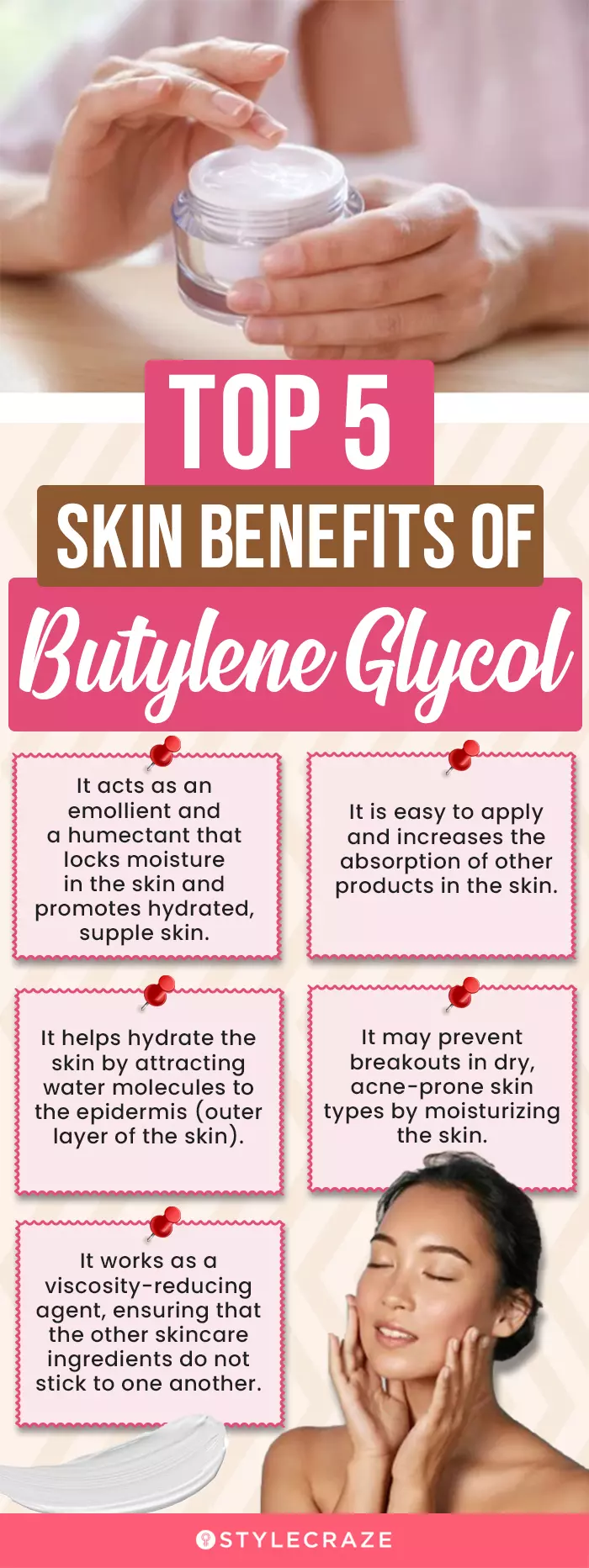
Illustration: StyleCraze Design Team
Butylene glycol is a popular ingredient that suits almost all skin types. This is a water-soluble ingredient and appears clear, viscous, and odorless. The benefits of butylene glycol include preventing water loss, maintaining skin hydration, treating acne and dry skin, and reducing the product’s viscosity.
As long as you are not allergic to it and do not have sensitive skin, butylene glycol is safe to use on your skin. Also, if you experience any side effects, it is best to consult your dermatologist as soon as possible and stop using it.
That said, make sure to include this all-purpose ingredient in your skincare regimen only after speaking to a dermatologist.
Frequently Asked Questions
Is butylene glycol the same as glycolic acid?
No, both butylene glycol and glycolic acid fall are water-soluble and fall under the larger group of compounds called glycols. Glycolic acid is derived from only sugarcane. Butylene glycol is derived from sugarcane, distilled corn and petroleum.
Is butylene glycol cancerous?
No, there is no scientific evidence that suggests that butylene glycol is cancerous. It is considered safe for use in skincare products.
Is butylene glycol a silicone?
No, both are different. Butylene glycol is made from sugarcane, distilled corn and petroleum. Silicone is a synthetic material made from carbon, hydrogen, oxygen and silicon.
Is butylene glycol a fatty alcohol?
Yes, butylene glycol is considered a fatty alcohol due to the presence of four carbon atoms.
Is butylene glycol a preservative?
Yes, butylene glycol is used as a preservative in various cosmetic products. It prevents contamination from microorganisms.
Key Takeaways
- Butylene glycol, a type of organic alcohol, is derived from petroleum, distilled corn, and sugarcane.
- It works as an excellent skin texture-enhancer.
- It also acts as an effective solvent for other ingredients and a penetration enhancer, helping the product seep into the skin faster and deeper.
- Butylene glycol hydrates and moisturizes the skin and may help with acne-related dryness.
- However, if you have acne-prone skin, use products containing butylene glycol with caution as it may clog your pores and cause breakouts, blackheads, and whiteheads.
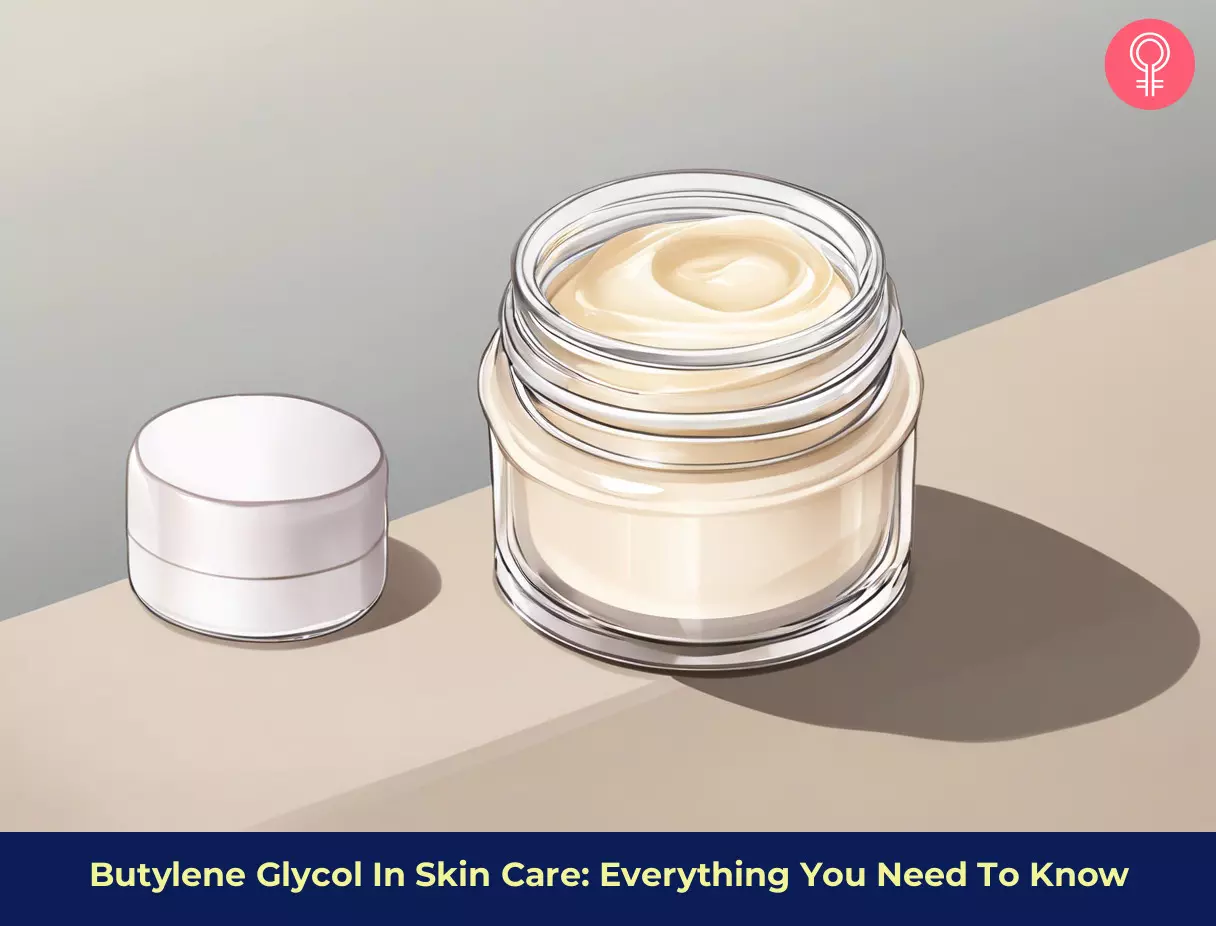
Image: Stable Diffusion/StyleCraze Design Team
Learn about the good and bad alcohols in skin care for Brown and Black skin in this video. Check it out to find out how to choose the right products for your skin type!
References
Articles on StyleCraze are backed by verified information from peer-reviewed and academic research papers, reputed organizations, research institutions, and medical associations to ensure accuracy and relevance. Read our editorial policy to learn more.
- Case of allergic contact dermatitis due to 1,3-butylene glycol
https://onlinelibrary.wiley.com/doi/abs/10.1111/1346-8138.12603 - Propylene Glycol
https://home.liebertpub.com/publications/dermatitis/672/overview - 8 Final Report on the Safety Assessment of Butylene Glycol, Hexylene Glycol, Ethoxydiglycol, and Dipropylene Glycol
https://journals.sagepub.com/doi/10.3109/10915818509078692 - Modulation of Dihydroavenanthramide D release and skin penetration by 1,2-alkanediols
https://www.sciencedirect.com/science/article/abs/pii/S093964110800146X?via%3Dihub - Moisturizers: The Slippery Road
https://www.researchgate.net/publication/303091758_Moisturizers_The_Slippery_Road - Moisturizers for Acne
https://www.ncbi.nlm.nih.gov/pmc/articles/PMC4025519/ - Butylene Glycol
https://www.ewg.org/skindeep/ingredients/700861-butylene_glycol/#about_range - Propylene Glycol
https://www.cir-safety.org/sites/default/files/115_blue_propyl.pdf - Propylene glycol, skin sensitisation and allergic contact dermatitis: A scientific and regulatory conundrum
https://www.sciencedirect.com/science/article/pii/S0273230023000090
Read full bio of Dr. Priya Gill
Read full bio of Ramona Sinha
Read full bio of Monomita Chakraborty





